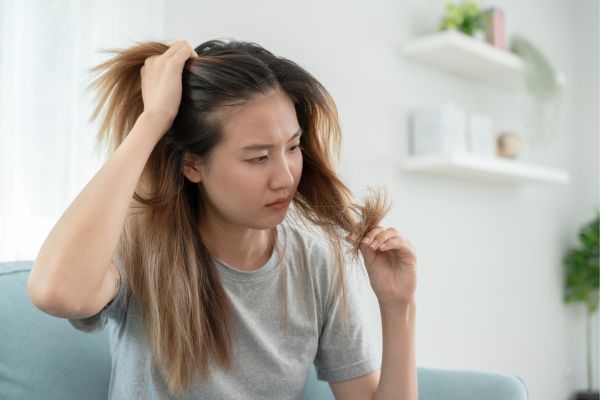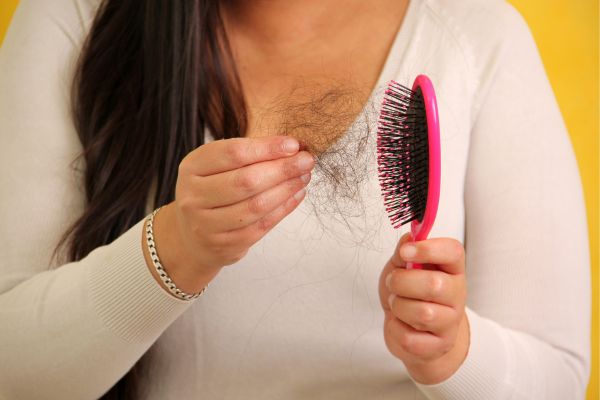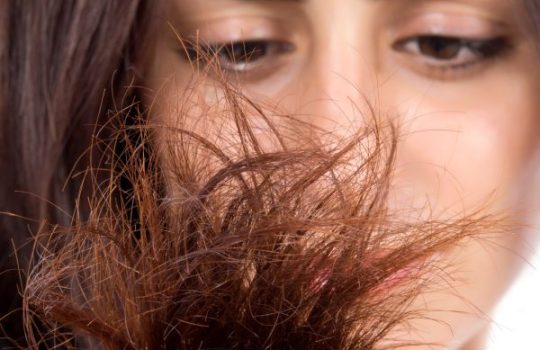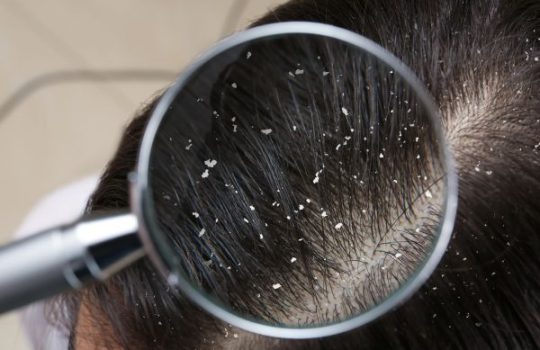How Does PCOS Cause Hair Loss?
Affecting between 8 to 13% of women of childbearing age in France, polycystic ovary syndrome, known by the acronym PCOS, has a direct impact on many aspects of health, including hair. But how can PCOS cause hair loss? In this article, we will enlighten you on this subject.

What is PCOS?
Polycystic ovary syndrome is a common condition characterized by hormonal imbalance. Indeed, this syndrome causes an increase in male hormones, such as testosterone, in women. Although present in small amounts in all women, people with PCOS have significantly higher levels. This hormonal imbalance causes a variety of symptoms that can vary from woman to woman.
The most common symptoms of PCOS include:
- Irregular menstrual cycles, which can manifest as irregular, absent, or very heavy periods.
- Difficulty conceiving, as PCOS can interfere with ovulation.
- Excessive hair growth, known as hirsutism. This can happen on the face, chest, back, or other parts of the body.
- Skin problems such as acne, excessive sebum production, or even hyperpigmentation on the neck or armpits.
- Hair loss, or alopecia.
It is important to note that not all women with PCOS will experience all of these symptoms, and the intensity of symptoms can also vary.
How Does PCOS Affect Hair Loss?
PCOS causes increased levels of androgen hormones, which can have a direct effect on hair follicles. This is because hair follicles on the scalp are sensitive to the hormone dihydrotestosterone (DHT), an androgenic hormone, which is present in higher amounts in women with PCOS. When DHT levels are high, the hair growth cycle is disrupted.
Normally, hair goes through a growth phase, a resting phase, then falls out, and a new hair grows. However, DHT causes a shortening of the growth phase and a lengthening of the resting phase. This means that hair that falls out is not replaced as quickly, which can lead to thinning hair. Additionally, DHT can cause hair follicles to shrink, resulting in the production of thinner, shorter hair. Over time, this can lead to androgenetic alopecia, or female pattern baldness.

PCOS Treatment and Management
Although there is no miracle cure for PCOS, it is possible to limit the symptoms of this syndrome. First of all, it is important to take into account your own symptoms and adapt your lifestyle accordingly. For example, if PCOS causes heavy periods in you, it is advisable to opt for iron supplements to avoid deficiencies. Additionally, a blood test is necessary to check the levels of vitamin D3 (which should be -60 ng/ml) and ferritin (which should be -70).
Testing for testosterone and estradiol is also recommended, as these hormones may be imbalanced in people with PCOS. Finally, using a topical lotion, such as our Extrem Pousse 3% serum , can help limit hair loss and stimulate growth. By effectively managing PCOS symptoms, you can improve your hair health and overall well-being!
It is important to remember that each person is unique. What works for one person may not work for another. It is therefore important to work closely with your doctor or other healthcare professional to develop a treatment plan that meets your specific needs.






